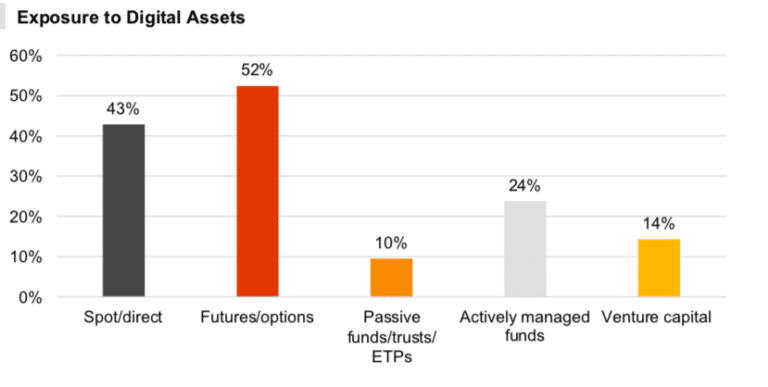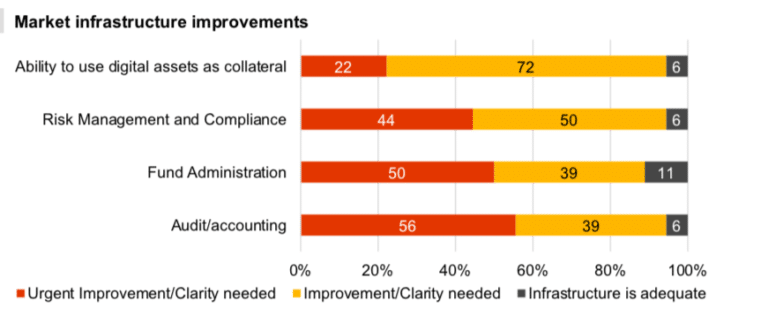Half of “traditional” hedge funds gain exposure to digital assets through derivatives trading according to PwC’s 4th Annual Global Crypto Hedge Fund Report 2022.
The study, produced with the Alternative Investment Management Association and Elwood Asset Management (now part of CoinShares), differentiates between specialist crypto asset hedge funds who were created to primarily deal in digital assets, and “traditional” asset-based hedge funds.
Approximately one third of traditional hedge funds currently invest in digital assets, an increase from one fifth in last year’s survey and the average allocation to digital assets increased slightly from 3% to 4%.
Two thirds, 67%, of traditional hedge funds are invested in bitcoin and ethereal. In addition, one third are invested in other tokens listed on centralised exchanges, one quarter in tokens listed on decentralised exchanges, while one in five respondents are invested in non-fungible tokens or NFTs.
Half, 52%, of traditional hedge funds invest in digital assets through futures and options, while at the same time the respondents using direct/spot trading increased to 43% from 33% last year.
Nearly all, 83%, of funds not invested in digital assets cited regulatory uncertainty as their biggest hurdle. Around a third, 27%, of respondents not currently investing in crypto said that if the main barriers were removed, they would actively accelerate their investment, to from 18% last year.
In addition to regulatory uncertainty, hedge funds said areas of digital asset market infrastructure also need to be improved. Audit and accounting is seen as the area in need of improvement, overtaking custody and safekeeping. Other areas cited by respondents for improvements include risk management and compliance, the ability to use digital assets as collateral and fund administration.
Terra
The number of specialist crypto hedge funds is estimated to have reached 300 globally, with the pace of new funds being created accelerating in the past two years according to the report. Total assets under management of crypto hedge funds surveyed was $4.1bn in 2021, up 8% from the previous year.
John Garvey, global financial services leader at PwC United States, said in a statement: “The recent collapse of Terra vividly demonstrated the potential risks in digital assets. There will continue to be volatility, but the market is maturing and with that is coming not only many more crypto-focused hedge funds and higher AuM, but also more traditional funds entering the crypto space.”
The survey was conducted in April 2022 when 27% of crypto hedge funds said they used TerraUSD (UST) as part of their trading activities and early May saw the de-pegging of UST in early May as the algorithmic stablecoin shed more than 90% of its value in less than two weeks.
“Whilst we do not know the magnitude of assets that these funds held in UST, we did note that all the respondents that used UST have also utilised other stablecoins such as USDC, USDT or other stablecoins,” said the report. “While 27% of funds used UST, 49% of our respondents have also traded Terra (LUNA) and depending on the position they have taken on Terra, this could translate into either huge losses or huge gains for these funds. However, the event would have wider implications for the general crypto market and we will likely see more regulation of stablecoins in the future.
In addition, crypto lending start-up Celsius has announced that only accredited U.S. users will be able to make deposits into its earning programs.







